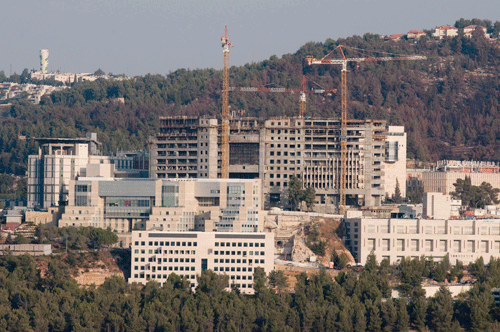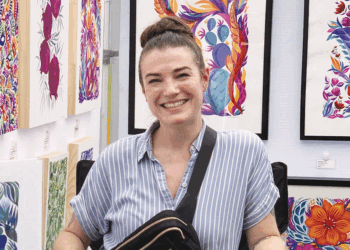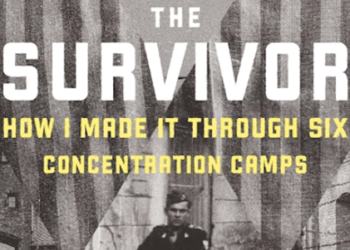Madoff ‘clawback’ lawsuits going after Jewish groups, others
By JACOB BERKMAN
NEW YORK (JTA) — When Bernard Madoff’s multibillion-dollar Ponzi scheme first came to light two years ago, several Jewish organizations suffered heavy losses, their assets devastated by the fraud.
Now with the filing of lawsuits by the trustee for Madoff’s estate, it is the winners — the Jewish organizations that inadvertently benefited from the scheme — that are at risk of losing money.
Among them are:
• The America-Israel Cultural Foundation, which raises money to support artists and cultural institutions in Israel. The foundation, which allegedly made $6.68 million in fictitious profit between 2002 and 2008, is being sued for just over $5 million, according to the Chronicle of Philanthropy.
• The American Committee for Shaare Zedek Medical Center in Jerusalem, which is being sued for approximately $7 million, according to the Forward.
• United Congregations Mesora, a nonprofit religious organization registered in Suffern, N.Y., and operated out of the offices of the Wolfson Group, according to the Forward. It is being sued for more than $16 million.
The biggest lawsuit, a claim of $19.6 billon, was filed against an Orthodox Jewish woman in Austria named Sonja Kohn. A housewife turned banker who was born in Vienna and resided in the Orthodox community of Monsey, N.Y., in the 1980s, Kohn is described as the biggest feeder of investor money into Madoff funds. She allegedly conspired with Madoff to lure investors, and reportedly withdrew some $423 million from Madoff’s fund just a month before Madoff was arrested in 2008. Representatives for Kohn have denied any wrongdoing.
Other Jewish institutions that benefited from the Ponzi scheme reached settlements with the Madoff estate’s trustee, Irving Picard, before the Dec. 11 deadline for filing the so-called clawback lawsuits. Picard filed more than 1,000 such lawsuits.
Hadassah: The Women’s Zionist Organization of America announced last week that it had agreed to pay back $45 million of the estimated $90 million it made in the scheme, according to a letter sent by the organization’s president, Nancy Falchuk, to supporters.
“Hadassah, like so many others, was misled,” she wrote. “Precisely because we were following a sound investment strategy, we realized more than we invested and will return some of the proceeds to be distributed to those who lost.”
Boston-area Jewish philanthropists Carl and Ruth Shapiro, who allegedly made more than $1 billion off their investments with Madoff, reportedly have agreed to pay back $625 million, which includes all the assets of their family foundation.
The agreement effectively wipes out the foundation, which had assets of $112 million in 2008, the last year for which data was available. The foundation had doled out annual seven-figure gifts to such Boston institutions as Brandeis University, the Beth Israel Deaconess Medical Center and Boston’s Museum of Fine Arts. Carl Shapiro is 97.
For now, many of the organizations targeted in the lawsuits are holding firm.
“AICF was and remains a victim of the fraud perpetrated by Bernard Madoff,” David Homan, the executive director of the America-Israel Cultural Foundation, said in a statement.
Homan denied any wrongdoing and called the lawsuit against his organization “unfortunate.” He also reportedly said that the foundation, which believed it had $13 million invested in Madoff’s fund, could seek a settlement. Homan did not return phone calls to JTA.
One of Madoff’s largest suppliers of investors in the United States was J. Ezra Merkin. The former chairman of the financial services giant GMAC, Merkin funneled some $2 billion of investors’ money to Madoff. Merkin is now the subject of multiple civil lawsuits brought by investors and the New York State attorney general.
In total, Picard has recovered about $2.6 billion through settlements. The lawsuits he filed this week seek more than $50 billion, a figure that is considerably higher than the $18 billion or so estimated lost in the scheme.
Among the lawsuits, Picard is seeking $6.5 billion from Madoff’s primary banker, JPMorgan Chase; $3.6 billion from the Fairfield Greenwich Group hedge fund; and $2.5 billion from the Swiss bank UBS AG, according to Reuters.
Picard also is suing for significant money from two Jewish philanthropists who were Madoff friends and beneficiaries but have died since the fraud came to light: $7.2 billion from the estate of Jeffry Picower, who died in October 2009; and $1.1 billion from the estate of Stanley Chais, who died in September. Both men had family foundations that gave to Jewish causes.
One of Madoff’s sons, Mark Madoff, who was believed to have been a target of Picard’s lawsuits but who maintained his innocence, committed suicide last weekend in his New York apartment.
The full extent of the damage that the recovery process will have on the nonprofit Jewish world will not be known until all of the lawsuits are settled. Even for those that already have reached a settlement, it’s not clear how the organizations’ activities will be affected.
“Hadassah’s fiscal discipline will allow it to pay this obligation from existing unrestricted funds,” Falchuk wrote to supporters about the $45 million settlement. “As always, Hadassah gifts will continue to be used for their intended purpose.”





















